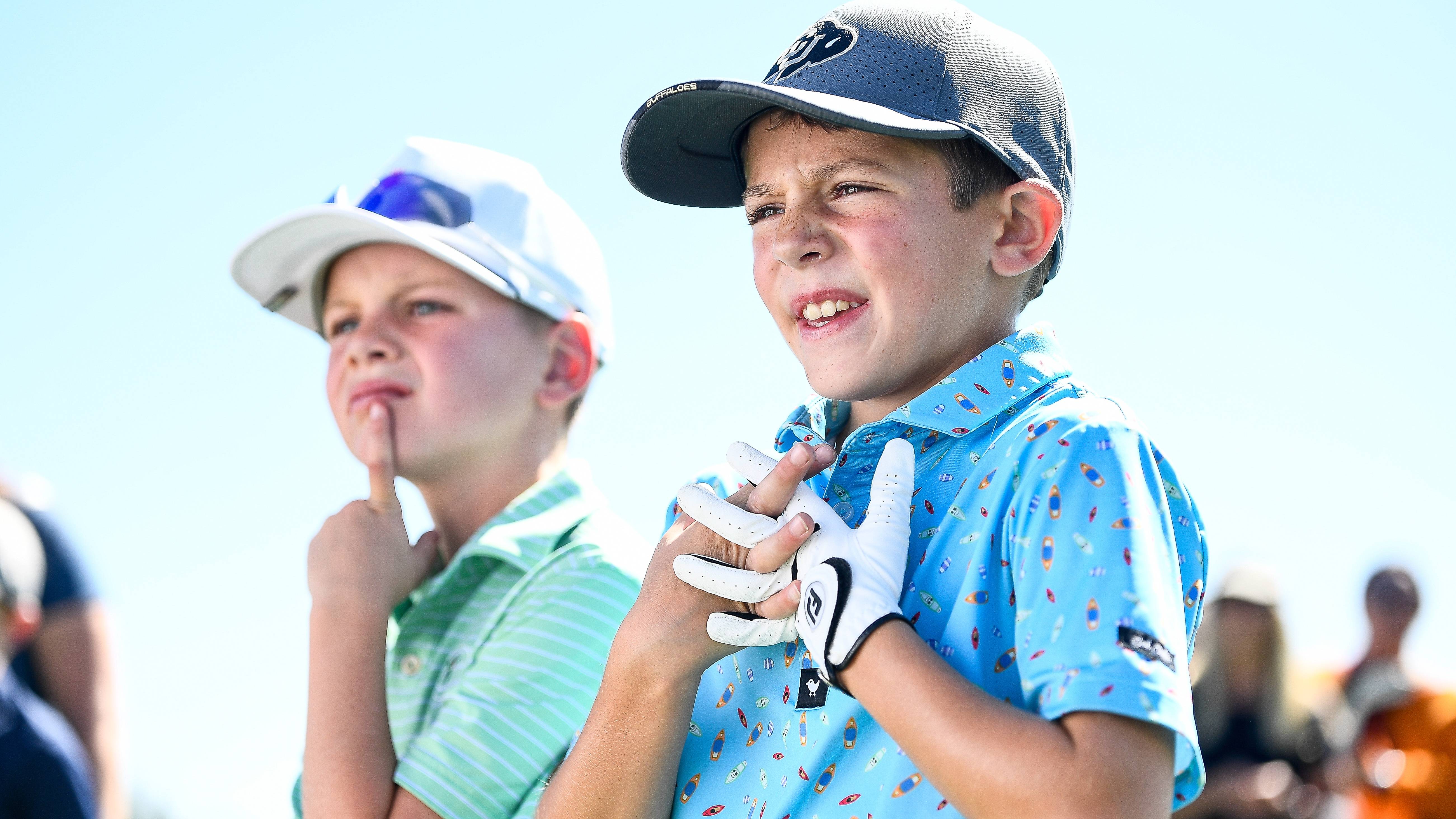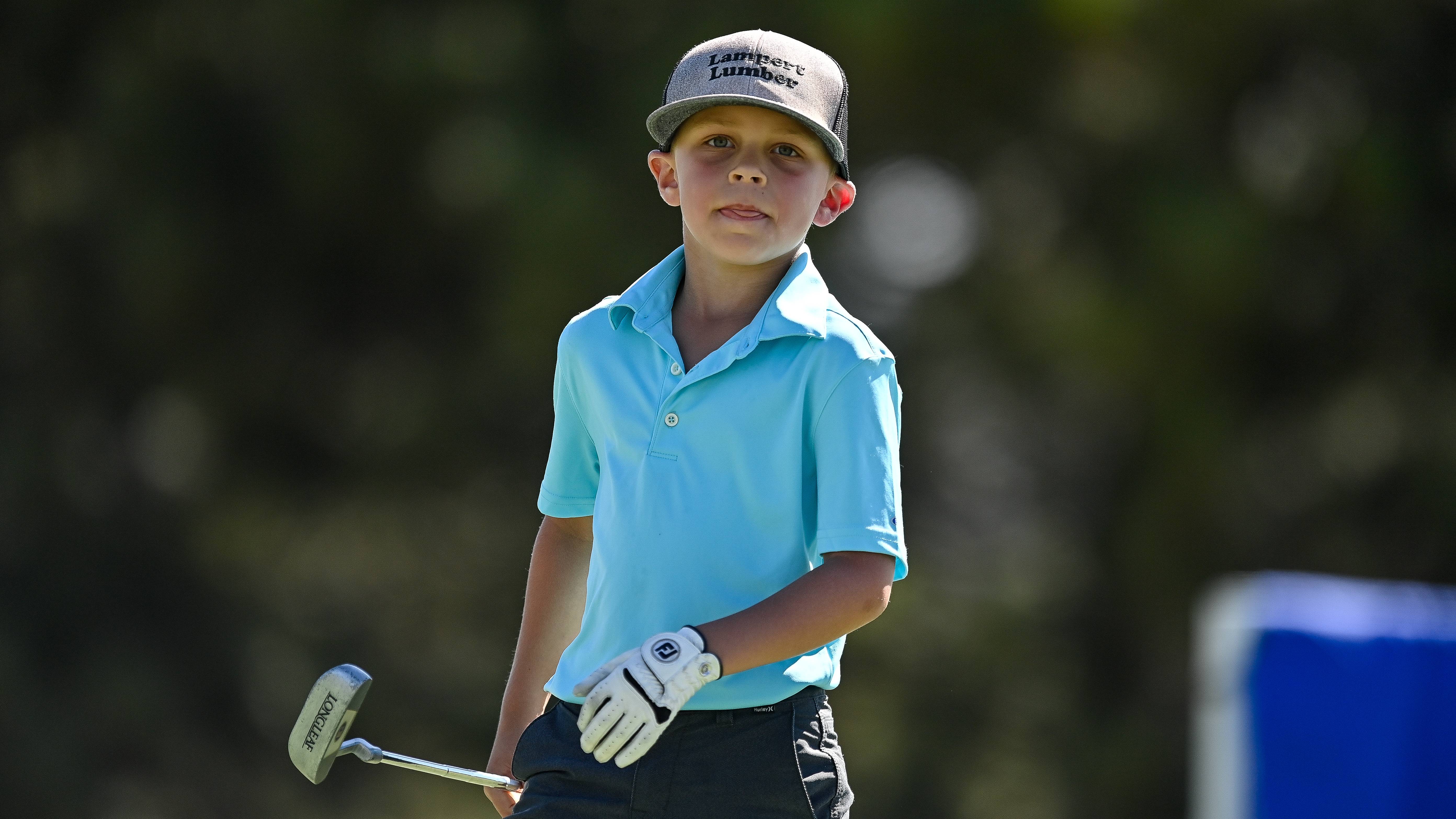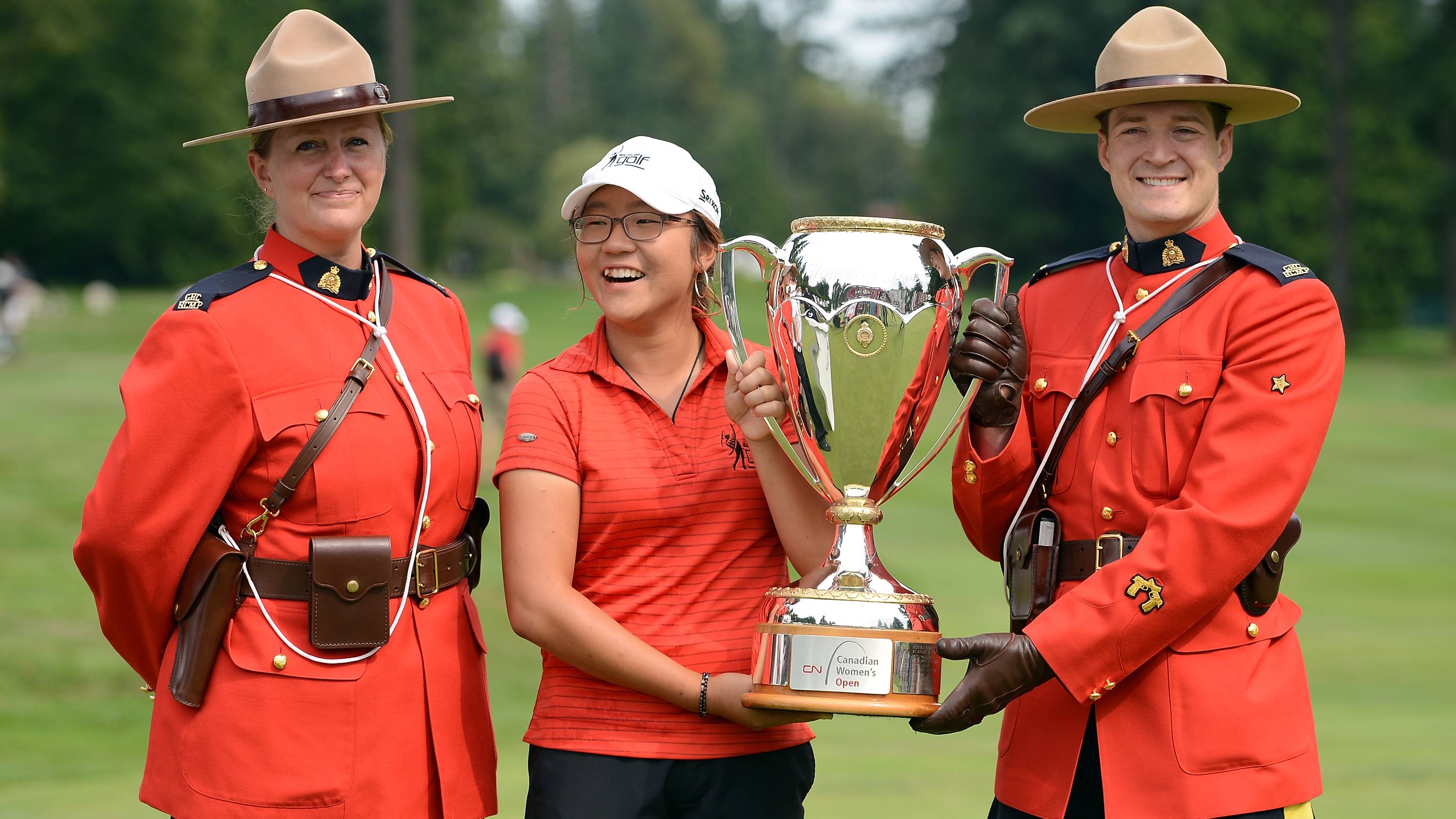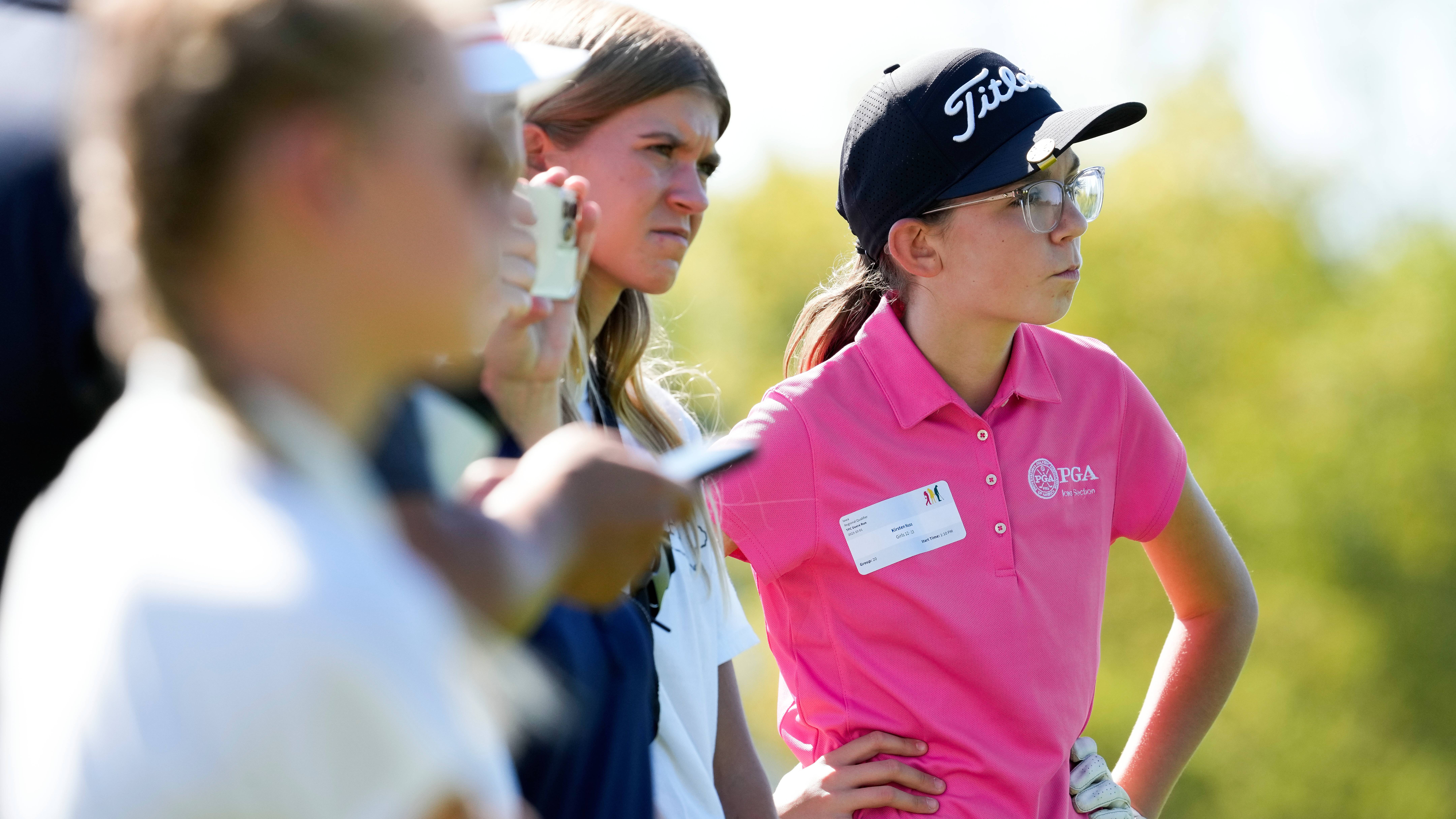
Burnout in junior golf is real and it’s essential as a parent and a coach that you can not spot it, but more importantly you know how to prevent it.
What Is Burnout?
Burnout is when a young golfer suddenly loses interest in the game, their excitement goes and they no longer enthusiastically discuss what happened during a round or even want to go and hit balls. Burnout flags to look out for include: Loss of desire to practice or succeed, emotional outbursts, not feeling like themselves, fatigue and sleep problems.
Why Does Burnout Happen?
Burnout can be caused by pressure from coaches, parents and peers. We’ve all seen those parents who are desperately trying to bring to life their own golfing goals and create the next big name in the game.
Pushing kids to fit a mould of a mini tour pro can be damaging. Some experts believe there is no such thing as an elite 8-year-old, kids should be learning to enjoy the game and grow their love for golf before they reach puberty. I think that feeding juniors hunger to improve is fine, however, there should always be careful monitoring that things aren’t getting too pressured. Constant checking in and keeping the whole process fun is so important.

Research has shown time and time again that specialising in one sport alone at a young age can be damaging. Dismissing other sports that could teach kids explosive power, endurance, teamwork and so much more could mean lost instinctive foundations.
Kids learn how to excel on autopilot with the help of variety. That energy and hunger to try new skills can’t be clawed back. As we get older, we become less able to throw ourselves into activities without the looming worry of failure.
Year round training in the same sport can be counterproductive. Training smarter will help to avoid a child burning out from golf. They can still grow the skills they use on the course, but perhaps through inventive and innovative avenues. Identifying sports that complement golf could be a great option.

Every now and then, a child comes along and they have such a hunger to solely play that chosen sport they bend over backwards to excel in it. Kids like Tiger. His father knew the benefits of maintaining the importance of finishing homework, doing chores etc. Once Tiger had completed his list, only then would he be able to hit balls, not as an addition to the list but as his reward.
Lydia Ko is another player who has seen great success and won her first tournament aged just 14. She's an example of a player who had golf at the core of her life from an early age and loved every second.
One of the most successful female golfers of all time is American Babe Didrikson Zaharias, who won 48 titles including 3 Major championships. However, she didn’t just play golf, but basketball, baseball, and she excelled in track and field before transitioning to the professional golf ranks, winning two gold medals at the 1932 Olympics.
I believe Zaharias’s variety and strengthening of her entire body on the track in her late teens was key to her success and is a great example of how other sports can improve chances in the golfing world. Her maturity would have also helped her ability to control emotions and her mental game on the course.

How Can Juniors Avoid Burnout?
It’s so important to take a varied approach to sports. Don’t get obsessed over one sport alone unless your child requests to do so. This is ok, but they need to ask and want to play or practice.
Setting goals early on in a golfer’s journey is key. These goals don’t just reflect GOLF GOLF GOLF, but in fact LIFE. This approach to the game must be rounded as the life of a child should be. How much time does a child want to spend with family and friends? How much time is spent in school and studying? How much time do they want to spend playing golf?
Experts in the USA state that a child should play their sport for as many hours as their age a week. This seems like a very logical plan. Given golf can mean 18 holes, maybe parents and coaches should be looking at shorter versions to keep young players engaged.

It makes sense that if you overload a child’s schedule, you will eventually exhaust them. If you exclude things from life then they’ll often feel resentment or simply become uninterested in golf.
According to research, 75% of athletes drop out of their sport aged 15-16. For girls, many reasons are to blame including periods and other interests. Is burnout really burnout before puberty? Or has a child just become overwhelmed? I’d argue in many cases it’s more the tons of other interests that crop up in teenage years and as hormones get involved. If a sport has become a task or chore, the likelihood is the junior golfer will take the more fun path and walk away.
Social skills can also be hampered if a child has stepped into, or rather been groomed into a life of a semi-professional golf early on. Missing out on key social activities, summer breaks, parties and the chance to evolve their social skills and human interaction can be damaging. So let’s keep golf fun. Let them play crazy golf, explore other versions of golf and perhaps come up with some of their own.
Let Them Lead The Way
The junior golfer must WANT to play, practice and so on. They must be ultimately in control of their schedule. This way they will want to take part in it. Begin this process by asking them, “Are you enjoying golf?”, “What’s the best and the worst thing about it?”
The answers to these questions can be really telling. Ask them if there is anything else they would like to try or do more of. Ask yourself what language you use when you talk to them about their golf. Are you giving them a choice or comply by telling them what’s on this week?
When adults burnout or experience being over golfed, often a break is the best fix. Taking time out of a sport can rekindle the passion, give you a chance to reset goals and just breathe.
Golf is a game that youngsters should be enjoying and relishing. Often players who started super young and who are dubbed as the next best thing, such as South African USKIDS sensation Eleanore Galletti, are often overtaken by peers who started later and peaked after puberty. Kids should be allowed to be kids until they decide to take the reins and think about a career.

It’s only a few weeks away from college golf kicking off in the USA, and I guarantee the buzz about goals and gaining tour status is already reverberating about households. Pressures on kids in the USA seem heavy, but then the college golf system is demanding and prepares players for life on tour.
Kim Lewellen is head coach at Wakeforest Univesity and won coach of the year in 2023. She believes that having a hunger to improve is a more valuable skill when picking her teams than someone who is at their peak. Lewellen wants to help kids who are on they’re journey to their best golf, and not take on someone who is likely to be already heading for burnout.
I love this approach. It’s not about all the trophies and the glory but growing the game and nurturing the player. This attitude would go a long way if adopted by more coaches and parents here in the UK.
So, perhaps it’s time to call yourself out and question if you are a parent or coach of junior golfers, are they showing any signs of burnout? Have this on your radar and put strategies in place to spot, treat, but more importantly prevent burnout. We’ll then see more talented and well-rounded kids coming through the ranks and perhaps enjoying golf for their entire lives.







